10 Grains You Think You Know But…….
Grains, particularly whole grains, are considered nutritious and beneficial for several reasons:
- Nutrient Content: Whole grains are rich in essential nutrients such as fiber, vitamins (B vitamins, for example), and minerals (iron, magnesium, and zinc). These nutrients play vital roles in various bodily functions, including energy production, immune system function, and bone health.
- Dietary Fiber: Grains, especially whole grains, are an excellent source of dietary fiber. Fiber is crucial for digestive health as it helps prevent constipation, promotes a feeling of fullness, and supports a healthy gut microbiota. Whole grains contain both soluble and insoluble fiber.
- Energy Source: Grains are a primary source of carbohydrates, which are the body’s main energy source. Carbohydrates provide fuel for the brain and muscles. Whole grains, in particular, release energy slowly, helping to maintain stable blood sugar levels and provide sustained energy.
- Heart Health: Consuming whole grains is associated with a reduced risk of heart disease. The fiber, antioxidants, and phytochemicals in whole grains contribute to lower cholesterol levels, improved blood vessel function, and reduced blood pressure.
- Weight Management: The fiber content in whole grains can aid in weight management by promoting satiety and reducing overall calorie intake. Additionally, the slower digestion of whole grains helps regulate blood sugar levels and prevents rapid spikes and crashes in energy.
- Digestive Health: Whole grains support digestive health by preventing constipation and promoting regular bowel movements. The fiber in grains also serves as a prebiotic, nourishing beneficial gut bacteria.
- Disease Prevention: Regular consumption of whole grains is associated with a lower risk of certain chronic diseases, including type 2 diabetes, certain cancers, and metabolic syndrome.
It’s important to note that while whole grains offer numerous health benefits, refined grains (such as white rice and white bread) have had the outer bran and germ layers removed, resulting in a loss of many nutrients and fiber.
Choosing whole grains over refined grains is generally recommended for maximizing health benefits. However, individual dietary needs can vary, and it’s always advisable to consult with a healthcare professional or a registered dietitian for personalized advice.
Click NEXT PAGE to learn more about 10 Grains That Are Good To Include In Your Diet.
1. Farro
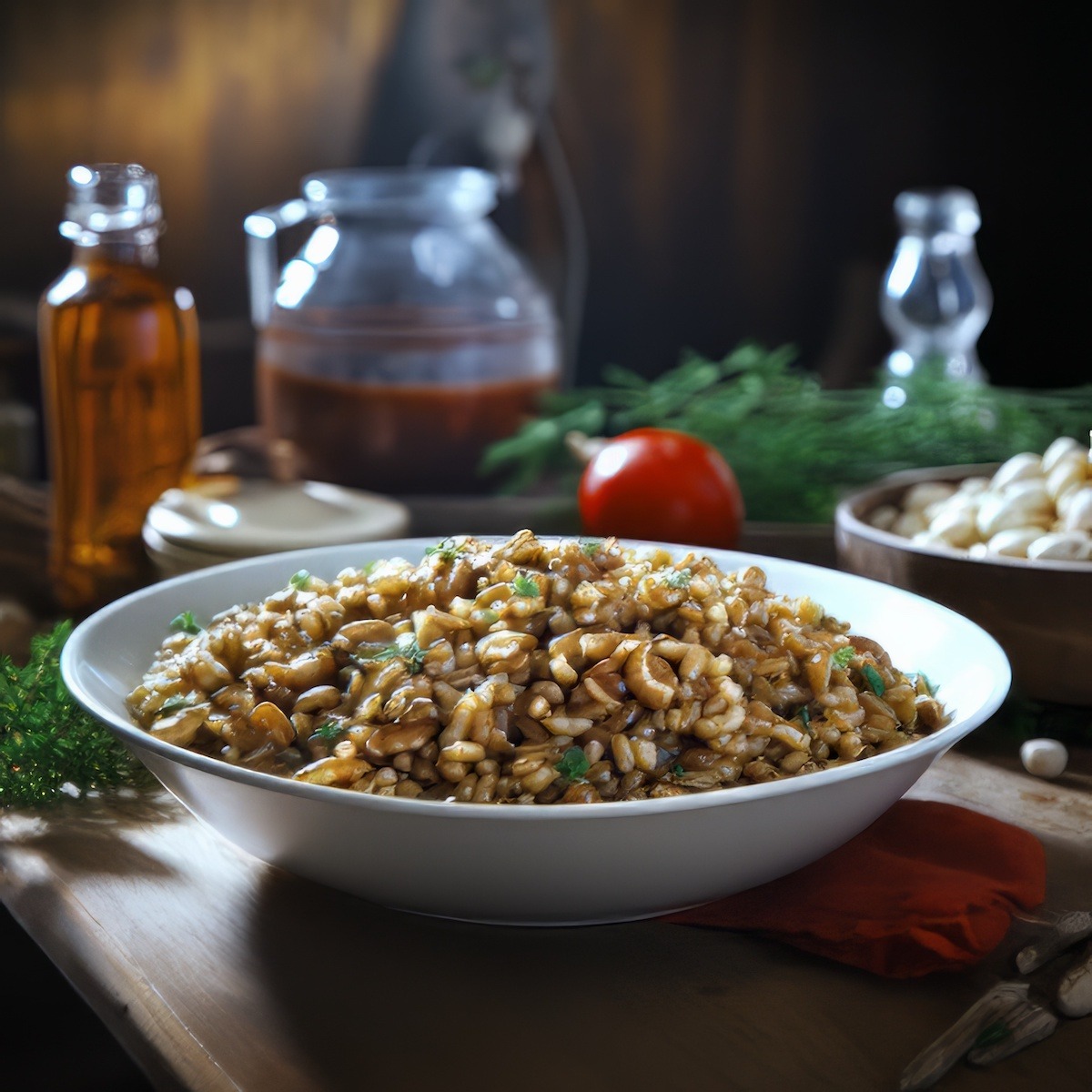
Farro, an ancient whole grain with roots dating back thousands of years, has experienced a resurgence in popularity in modern cuisine due to its rich nutritional profile and versatile culinary applications. Belonging to the wheat family, farro is an ancient grain with a chewy texture, nutty flavor, and a robust nutritional profile that sets it apart as a wholesome and satisfying food.
One of the defining features of Farro is its exceptional nutritional content. It is a rich source of complex carbohydrates, providing a sustained release of energy. The grain contains notable amounts of protein, making it an excellent choice for individuals seeking plant-based protein alternatives. Additionally, farro is high in dietary fiber, with both insoluble and soluble fibers contributing to digestive health. The fiber content aids in promoting satiety, regulating blood sugar levels, and supporting a healthy gut microbiota.
Farro is also a nutrient powerhouse, boasting a range of essential vitamins and minerals. It contains significant amounts of B vitamins, including B3 (niacin), B5 (pantothenic acid), and B6 (pyridoxine), which play vital roles in energy metabolism and overall well-being. Minerals such as iron, magnesium, and zinc are also present, contributing to functions such as oxygen transport, muscle and nerve function, and immune system support.
Beyond its nutritional benefits, farro’s versatility in the kitchen makes it a favorite among chefs and home cooks alike. It can be used in various dishes, ranging from salads and soups to risottos and pilafs. Its firm texture allows it to hold up well in hearty dishes and readily absorbs flavors from accompanying ingredients. Farro’s adaptability makes it an ideal ingredient for both sweet and savory recipes, showcasing its flexibility in the culinary world.
Cooking farro is a straightforward process, typically involving boiling or simmering the grains until they achieve a tender yet slightly chewy consistency. Once cooked, farro can be incorporated into salads with fresh vegetables and herbs, used as a base for grain bowls, or included in stews and casseroles for added depth and nutrition.
The resurgence of interest in ancient grains like farro aligns with contemporary dietary preferences that emphasize whole, minimally processed foods. As more people seek nutritious and flavorful alternatives to refined grains, farro stands out as a wholesome option that satisfies the palate and provides myriad health benefits. Whether enjoyed as a side dish, a main course, or even in baked goods, farro continues to make its mark as a nutritious and delicious grain in today’s diverse culinary landscape.
2. Quinoa
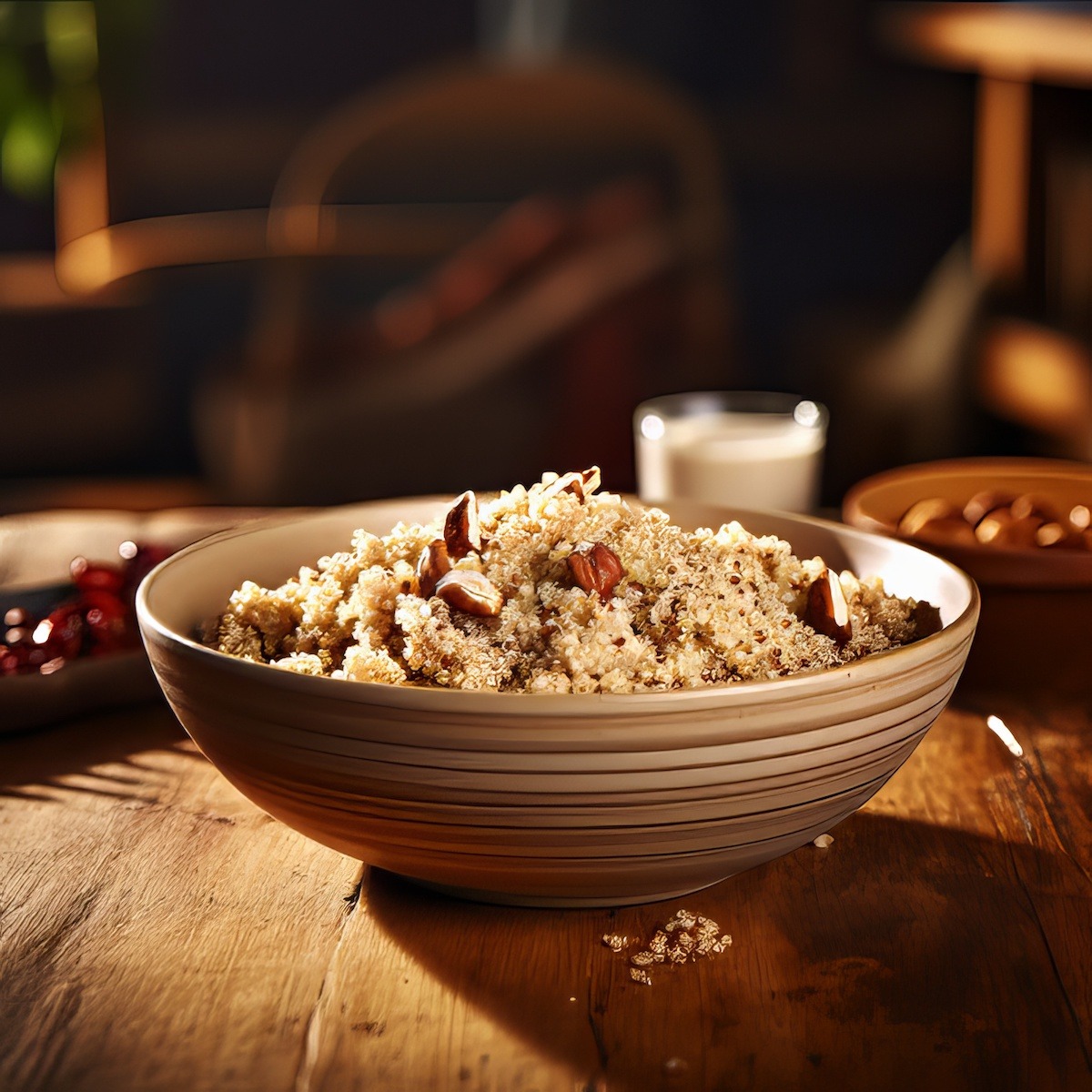
Quinoa, often hailed as a superfood, has gained widespread popularity recently for its exceptional nutritional content and versatility in the kitchen. Native to the Andean region of South America, quinoa has been a staple in the diet of indigenous populations for thousands of years, and today it has become a global phenomenon, celebrated for its unique combination of health benefits and culinary adaptability.
Its status as a complete protein source is at the heart of quinoa’s nutritional appeal. Unlike many plant-based foods, quinoa contains all nine essential amino acids that the human body cannot produce independently. This makes it an excellent protein option for vegetarians, vegans, and individuals seeking alternative protein sources. The protein in quinoa contributes to muscle repair and growth, immune system function, and overall cellular health.
Quinoa is also a rich source of dietary fiber, particularly soluble fiber, which aids in digestion, promotes a feeling of fullness, and helps regulate blood sugar levels. Combining protein and fiber makes quinoa ideal for managing weight or improving metabolic health.
Beyond its protein and fiber content, quinoa is a nutrient powerhouse, providing essential vitamins and minerals. It is a good source of magnesium, iron, zinc, and B vitamins, including folate and riboflavin. These nutrients are crucial in energy metabolism, immune function, and healthy skin and hair maintenance.
One of quinoa’s standout features is its adaptability in the kitchen. It comes in various colors, including white, red, and black, each with its own unique flavor profile and texture. Quinoa’s versatility allows it to be incorporated into various dishes, from salads and soups to breakfast bowls and even desserts. Its light, fluffy texture and slightly nutty taste make it a delightful addition to both savory and sweet recipes.
Cooking quinoa is a straightforward process involving a simple rinse to remove any bitter coating (saponin) and then simmer in water or broth until the grains become tender. This ease of preparation and quick cooking time make quinoa convenient for busy lifestyles.
As dietary preferences shift toward whole, nutrient-dense foods, quinoa is valuable to a balanced, health-conscious diet. Its remarkable nutritional content and culinary versatility have solidified quinoa’s place as a staple in the modern kitchen, offering a wholesome and satisfying option for those seeking flavor and nutrition.
Be sure to check out my Avocado and Red Quinoa recipe and my Pan Seared Chicken Breast Over Quinoa recipe.
3. Millet
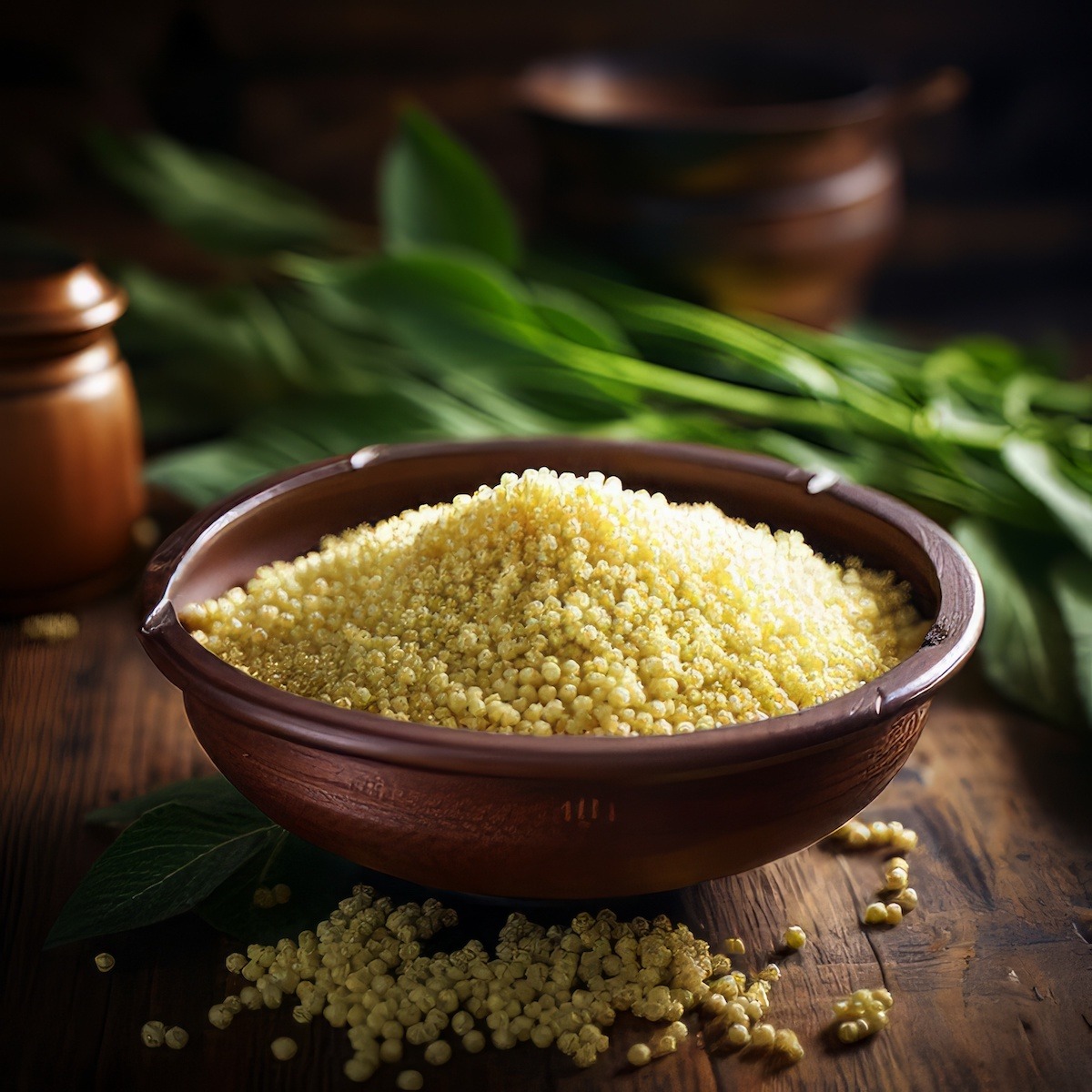
You are probably wondering what millet is, and I admit, I wasn’t quite sure what it was before I began my research.
Millet, a group of small-seeded grasses, has been a staple food in many parts of the world for thousands of years, particularly in Asia and Africa. Despite being lesser known compared to some other grains, millet is gaining recognition for its nutritional benefits and versatility in cooking.
One of the notable characteristics of millet is its resilience and ability to grow in diverse climates, including arid regions where other crops may struggle. This makes millet an important food source in areas with challenging agricultural conditions. Millet is also gluten-free, making it a suitable grain for individuals with gluten sensitivities or celiac disease.
Nutritionally, millet offers a range of health benefits. It is a good source of complex carbohydrates, providing a steady release of energy. Millet contains essential nutrients such as magnesium, phosphorus, and manganese, which are crucial for bone health, energy metabolism, and antioxidant defense. Additionally, millet is rich in dietary fiber, promoting digestive health and helping to prevent constipation.
Millet is known for its versatility in the kitchen, where it can be used in various dishes. Common types of millet include pearl millet, finger millet, foxtail millet, and proso millet, each with its unique flavor and texture. Pearl millet, for instance, has a slightly nutty taste, while finger millet has a more earthy flavor. Millet can be used in both sweet and savory recipes, from porridge and pilafs to salads and baked goods.
In some cultures, millet is a traditional ingredient for preparing flatbreads, such as roti or bhakri. Millet flour is also used in gluten-free baking, providing an alternative to wheat flour in recipes for bread, muffins, and pancakes.
Millet’s adaptability extends beyond the kitchen to its potential role in addressing global food security challenges. Its ability to thrive in diverse climates, resistance to pests, and efficient water usage make it a resilient and sustainable crop.
As awareness of diverse and nutrient-rich grains grows, millet is experiencing a renaissance as a wholesome and nourishing food option. Its nutritional content, versatility, and adaptability to various growing conditions position millet as a valuable addition to a balanced and sustainable diet, offering both health benefits and culinary creativity in the evolving landscape of global cuisine.
4. Spelt
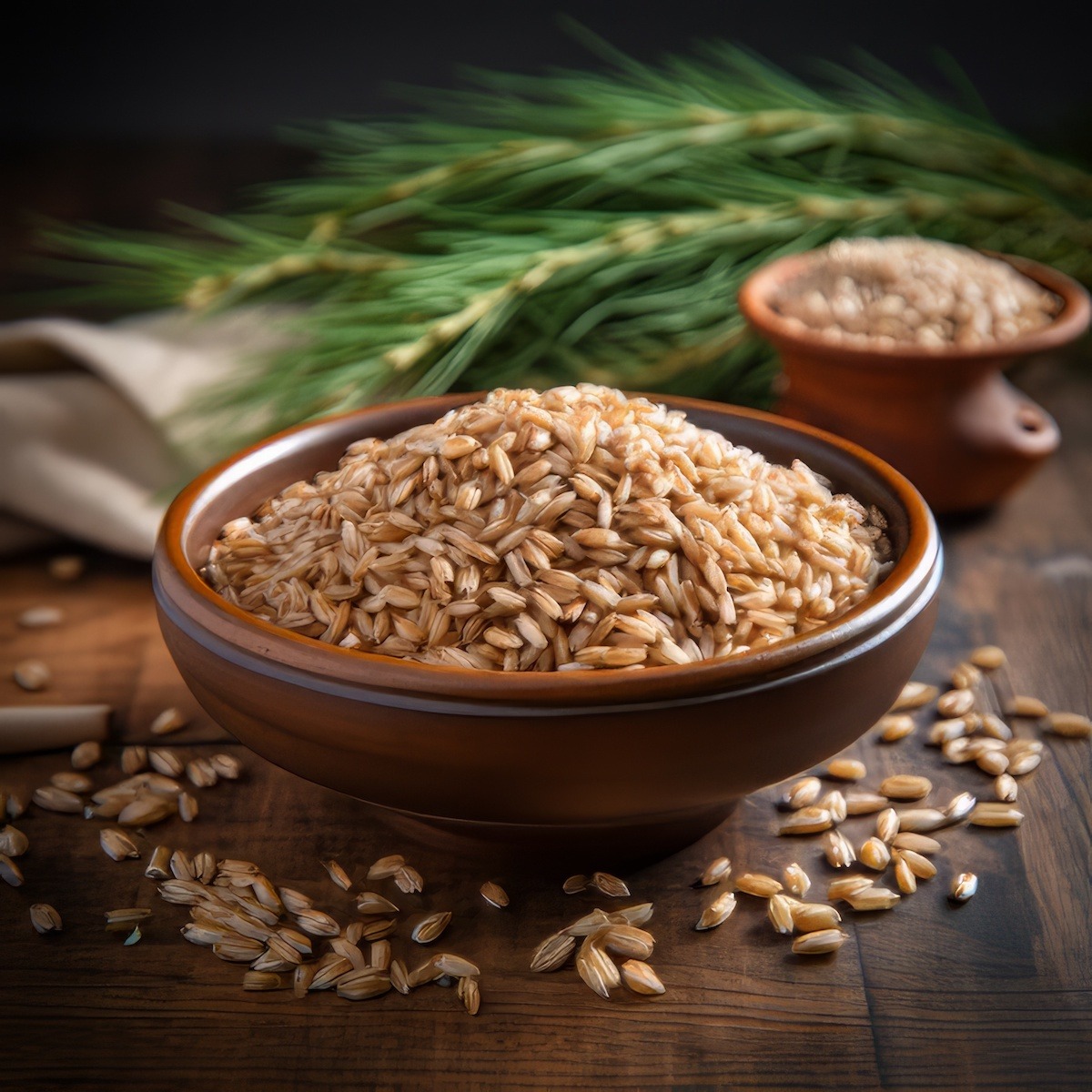
Spelt (Triticum spelta) is an ancient grain that has been cultivated for thousands of years and is gaining popularity today for its nutritional benefits and unique flavor. Believed to be a distant cousin to modern wheat, spelt has a distinct genetic makeup that sets it apart, contributing to its resilience and nutritional qualities.
Here are some key aspects of spelt:
- Nutritional Profile: Spelt is a nutritionally dense grain offering various essential nutrients. It is a good source of complex carbohydrates, providing sustained energy. Spelt contains significant amounts of protein, fiber, and various vitamins and minerals, including B vitamins, iron, magnesium, and phosphorus.
- Digestibility: Some individuals sensitive to modern wheat find spelt more easily digestible. This is often attributed to differences in the gluten structure between spelt and common wheat varieties. While spelt does contain gluten, some people with mild gluten sensitivities report experiencing fewer digestive issues when consuming spelt-based products.
- Rich Flavor and Texture: Spelt has a distinct nutty flavor that adds depth to dishes. Its slightly chewy texture makes it a popular choice for bread, pasta, and other baked goods. Spelt flour is commonly used in artisanal bread-making, contributing to a hearty and wholesome taste.
- Versatility in the Kitchen: Spelt can be used in various culinary applications. Spelt flour, in particular, is a versatile ingredient suitable for baking bread, cakes, and cookies. Spelt grains can be cooked and added to salads, soups, or pilafs, offering a nutritious and flavorful alternative to other grains.
- Ancient Heritage: Like other ancient grains, spelt has a rich historical and cultural heritage. It was a staple in many ancient civilizations, including those in Europe and the Middle East. The revival of interest in traditional and ancient grains has contributed to the resurgence of spelt as a popular choice for those seeking alternatives to modern wheat.
- Organic Farming Practices: Spelt is often cultivated using organic farming methods. This aligns with the growing interest in sustainable and environmentally friendly agricultural practices. Choosing organic spelt products may also reduce exposure to synthetic pesticides and fertilizers.
- Availability: Spelt products, including spelt flour, pasta, and whole spelt grains, are increasingly available in health food stores and supermarkets. The growing demand for alternative grains has led to a broader market presence for spelt-based products.
As with any dietary choice, individual responses to spelt can vary. It’s essential for individuals with gluten-related disorders, such as celiac disease, to exercise caution, as spelt does contain gluten. Overall, spelt’s unique nutritional profile, versatility, and historical significance contribute to its appeal for those looking to explore diverse and wholesome grains in their diets.
5. Kamut
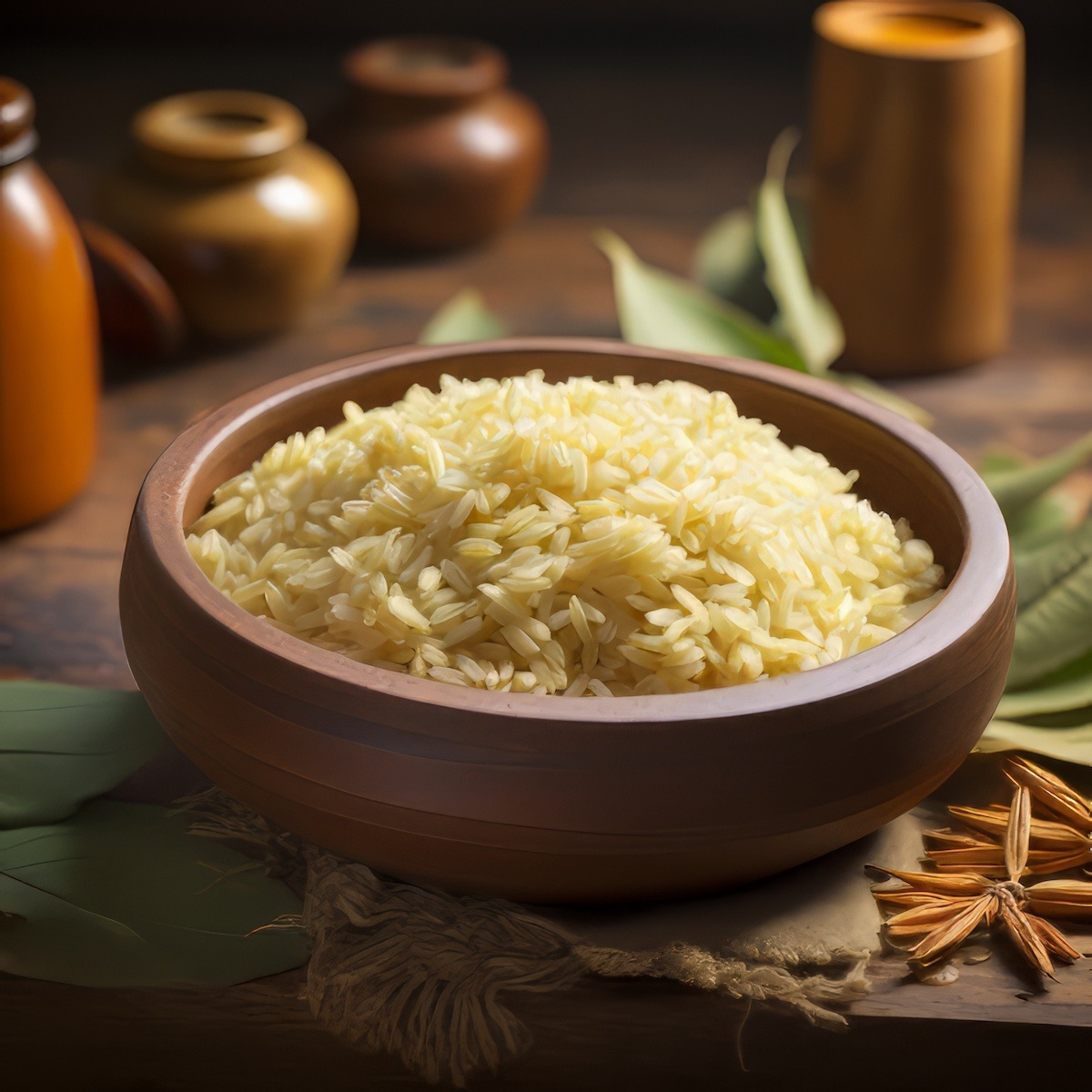
Kamut, or “King Tut’s Wheat,” is an extremely ancient grain—so ancient that it was rumored to have been found in the tombs of the ancient Egyptian Pharaohs!
KAMUT®, often stylized in all capital letters, is a brand name for a specific type of ancient wheat known as Khorasan wheat. KAMUT® is a registered trademark used to market and promote this particular wheat variety, prized for its nutritional qualities, unique taste, and historical significance.
Khorasan wheat has ancient origins, believed to have been cultivated in the Fertile Crescent thousands of years ago. The grain was rediscovered in the late 20th century, and the trademarked name “KAMUT®” was adopted to distinguish this specific strain of wheat from other varieties.
Here are some key characteristics and attributes of KAMUT® wheat:
- Nutritional Profile: KAMUT® is often praised for its nutritional density. It contains a range of essential nutrients, including protein, fiber, vitamins, and minerals. One of its notable features is its high protein content, making it a valuable source for individuals seeking plant-based protein options.
- Ancient Grain Status: As an ancient grain, KAMUT® is celebrated for its connection to traditional and ancient agricultural practices. The grain has retained its original genetic makeup over time, distinguishing it from modern wheat varieties through its distinctive characteristics.
- Unique Taste and Texture: KAMUT® has a rich, nutty flavor and a chewy texture, making it a popular choice for various culinary applications. Its unique taste can add depth to various dishes, from bread and pasta to cereals and salads.
- Organic Farming: The production of KAMUT® wheat often emphasizes organic farming practices. Many farmers growing KAMUT® follow organic and sustainable agricultural methods, aligning with the broader movement toward environmentally friendly and socially responsible food production.
- Gluten Content: While KAMUT® wheat contains gluten, some individuals with gluten sensitivities report tolerating it better than modern wheat varieties. However, individuals with celiac disease should still exercise caution, as KAMUT® is not considered gluten-free.
- Versatility in the Kitchen: KAMUT® wheat can be used in various culinary applications, including baking, cooking, and brewing. It is commonly found in products such as KAMUT® wheat berries, flour, pasta, and bread.
As with any food product, the nutritional composition and specific characteristics may vary based on factors such as cultivation methods, growing conditions, and processing. When seeking KAMUT® products, consumers often look for the official trademark to ensure they obtain the authentic ancient grain variety with its unique attributes.
6. Wheat Berries
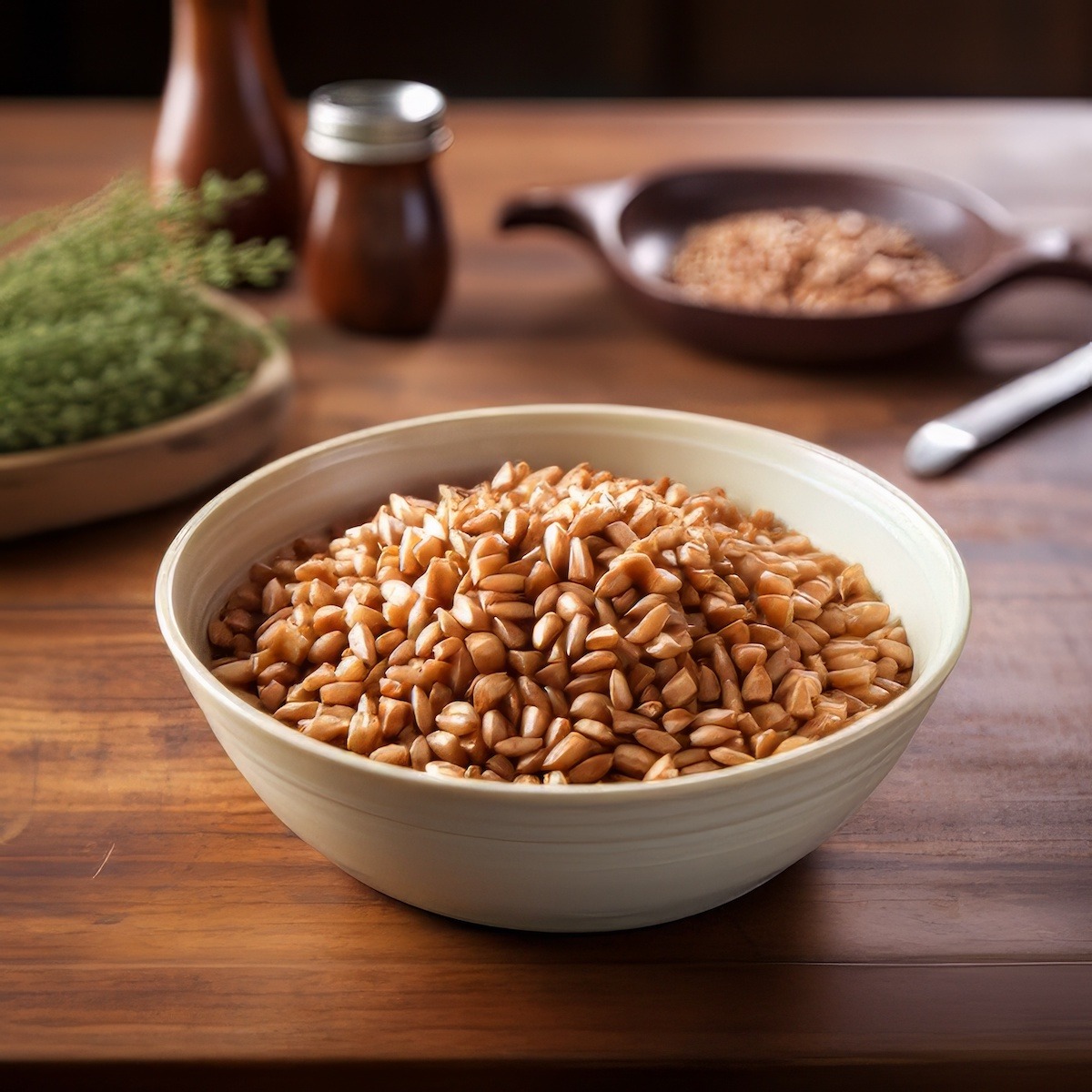
Wheat berries are whole, unprocessed wheat kernels that include the bran, germ, and endosperm. These nutritious grains are the foundation of many wheat-based products and offer a variety of health benefits. Here are key aspects of wheat berries:
- Whole Grain Goodness: Wheat berries are considered whole grains because they retain all three parts of the wheat kernel—the bran, germ, and endosperm. This means they contain many nutrients, including fiber, vitamins, minerals, and antioxidants. The intact bran and germ contribute to their robust nutritional profile.
- Nutritional Content: Wheat berries are a rich source of dietary fiber, which supports digestive health, helps maintain a feeling of fullness, and can aid in weight management. They also contain essential nutrients such as B vitamins, iron, magnesium, and phosphorus, contributing to energy metabolism, red blood cell formation, and bone health.
- Slow Digestion and Blood Sugar Regulation: The high fiber content in wheat berries promotes slow digestion, gradually releasing glucose into the bloodstream. This can contribute to better blood sugar control, making wheat berries a suitable option for individuals with diabetes or those looking to manage their blood sugar levels.
- Versatility in Cooking: Wheat berries have a firm, chewy texture and a nutty flavor, making them a versatile ingredient in the kitchen. They can be cooked and used as a base for salads, soups, or pilafs. Cooked wheat berries can also be added to breakfast bowls and yogurt or used in baked goods for added texture and nutritional value.
- Satiety and Weight Management: The combination of fiber, protein, and complex carbohydrates in wheat berries contributes to a sense of fullness and satiety. This can benefit those who manage their weight by reducing overall calorie intake.
- Whole Grain Benefits: Consuming whole grains like wheat berries is associated with various health benefits, including a reduced risk of heart disease, type 2 diabetes, and certain cancers. The fiber, antioxidants, and phytochemicals present in whole grains play a role in these protective effects.
- Culinary Uses: Wheat berries can be used in various culinary applications. They can be boiled or simmered until tender and then incorporated into salads and side dishes or used as a stuffing. Their hearty texture makes them a great addition to soups and stews.
- Storage and Shelf Life: Wheat berries have a long shelf life when stored in a cool, dry place. They can be kept in an airtight container for an extended period without losing their nutritional value.
Wheat berries are a wholesome and nutritious whole grain with various health benefits. Their versatility in the kitchen and rich nutrient content make them a valuable addition to a balanced and health-conscious diet.
Check out my recipe for Cracked Wheat Berries with Jalapeno Herb Salsa
7. Brown Rice
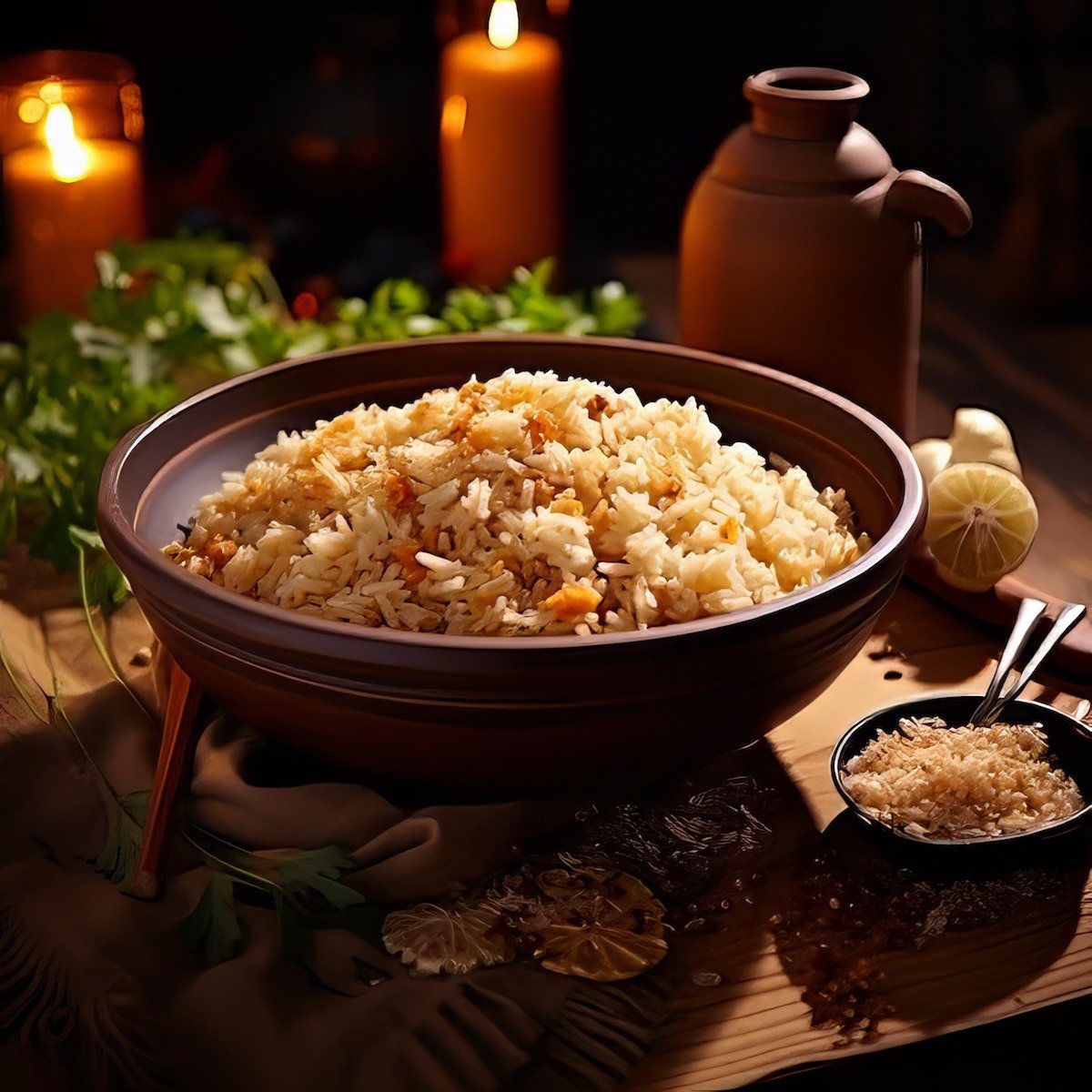
Brown rice is a whole-grain rice variety that retains its bran layer, germ, and endosperm, making it a more nutritious option than white rice. This unrefined grain is celebrated for its robust flavor, chewy texture, and many health benefits.
- Nutritional Value: One of the primary reasons brown rice is considered a healthier alternative to white rice is its superior nutritional content. It is a rich source of dietary fiber, which aids in digestion, promotes a feeling of fullness, and helps regulate blood sugar levels. Brown rice also contains essential nutrients such as B vitamins (including B1, B3, and B6), minerals (such as magnesium and phosphorus), and antioxidants.
- Whole Grain Goodness: Whole grain brown rice provides more nutrients because it retains the bran and germ layers removed during milling to produce white rice. The bran is particularly rich in fiber, while the germ contains healthy fats, vitamins, and minerals.
- Digestive Health: The fiber content in brown rice contributes to overall digestive health. Fiber helps prevent constipation, supports healthy gut microbiota, and may reduce the risk of developing conditions such as diverticulosis.
- Weight Management: Brown rice can be a valuable component of a weight management plan due to its high fiber content and ability to promote satiety. The slower digestion of fiber helps control appetite and prevent overeating.
- Blood Sugar Control: The complex carbohydrates and fiber in brown rice contribute to a slower release of glucose into the bloodstream. This can aid in better blood sugar control, making it suitable for individuals with diabetes or those aiming to prevent insulin spikes and crashes.
- Heart Health: Brown rice is associated with cardiovascular benefits. The fiber, along with compounds like lignans and antioxidants, helps lower cholesterol levels, reduce blood pressure, and support overall heart health. The magnesium content in brown rice also contributes to cardiovascular well-being.
- Versatility in Cooking: Brown rice’s nutty flavor and chewy texture make it a versatile ingredient in the kitchen. It can be used as a side dish, added to salads, incorporated into stir-fries, or used as a grain bowel base. Its adaptability allows for creative and nutritious meal options.
- Antioxidant Properties: Brown rice contains antioxidants, including selenium, which play a role in neutralizing harmful free radicals in the body. Antioxidants contribute to reducing oxidative stress and inflammation.
- Environmental Considerations: Choosing brown rice over white rice may align with environmental sustainability efforts. The production of white rice involves more processing and nutrient loss, while brown rice is less refined and retains more of its natural nutritional composition.
Brown rice stands out as a wholesome and nutrient-dense grain, offering a range of health benefits. Its incorporation into a balanced diet provides essential nutrients, supports digestive and cardiovascular health, and contributes to overall well-being.
8. Bulgur
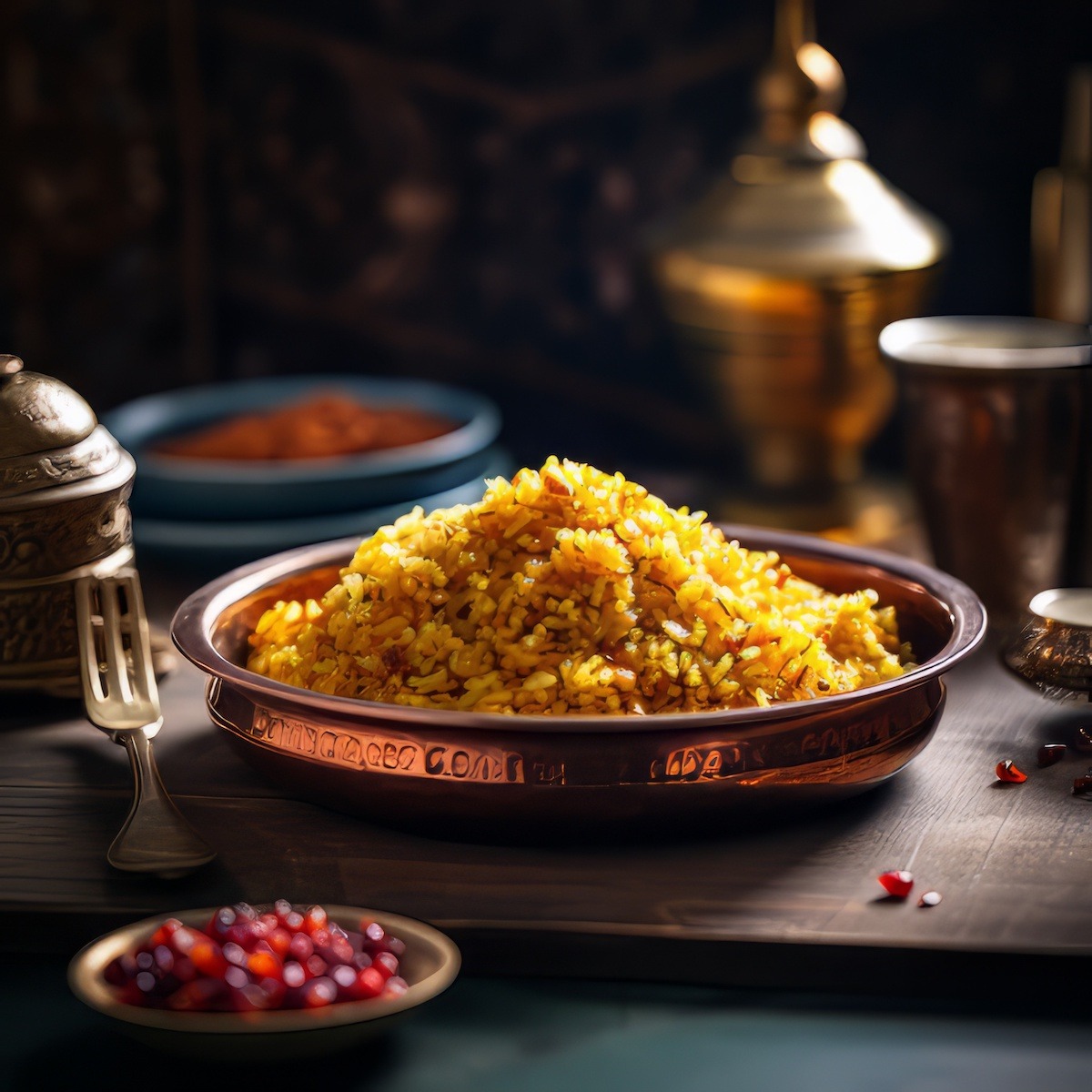
Bulgur, a staple in Middle Eastern and Mediterranean cuisine, is a versatile and nutritious whole grain that has gained popularity worldwide. Made from cracked wheat that has been parboiled and dried, bulgur offers a unique texture, nutty flavor, and a range of health benefits.
- Nutritional Content: Bulgur is a nutrient-rich food with essential vitamins and minerals. It is a good source of complex carbohydrates, fiber, and plant-based protein. Additionally, bulgur contains key nutrients such as B vitamins (including niacin, B6, and folate), iron, magnesium, and phosphorus.
- Whole Grain Goodness: As a whole grain, bulgur retains the bran and germ layers of the wheat kernel, ensuring that it offers more nutritional value than refined grains. The fiber in bulgur supports digestive health, aids in weight management, and helps regulate blood sugar levels.
- Quick Cooking Time: One of the advantages of bulgur is its quick cooking time. Due to the pre-processing method of parboiling, bulgur can be ready to eat in as little as 10 to 20 minutes, making it a convenient choice for busy lifestyles.
- Versatility in the Kitchen: Bulgur’s versatility in the kitchen makes it a popular ingredient in a variety of dishes. It serves as a base for salads, pilafs, and stuffings, adding texture and substance to these dishes. Bulgur can also be used in soups, casseroles, or even as a breakfast cereal.
- Texture and Flavor Profile: Bulgur has a unique chewy texture and a slightly nutty flavor, enhancing the overall taste of dishes. It complements both savory and sweet preparations, making it suitable for various culinary applications.
- Weight Management: The fiber content in bulgur contributes to a sense of fullness and satiety, which can benefit weight management. Including bulgur in meals may help control overall calorie intake by promoting a feeling of satisfaction.
- Heart Health: The fiber and phytonutrients in bulgur contribute to heart health. Regular consumption may help lower cholesterol levels, reduce the risk of cardiovascular disease, and support overall cardiovascular well-being.
- Low in Fat: Bulgur is naturally low in fat, making it a healthy option for those watching their fat intake. It provides a nutritious foundation for meals without adding excessive calories from fats.
- Gluten-Free Option: While bulgur is made from wheat and contains gluten, gluten-free alternatives are available, such as bulgur made from gluten-free grains like millet or rice. These options cater to individuals with gluten sensitivities or those following a gluten-free diet.
Bulgur is a nutritious and convenient whole grain with a rich culinary history. Its quick cooking time, versatility, and health benefits make it a valuable addition to a balanced and diverse diet. Whether used in savory dishes or incorporated into sweet recipes, bulgur offers a delightful and nourishing contribution to various culinary creations.
9. Steel-Cut Oats
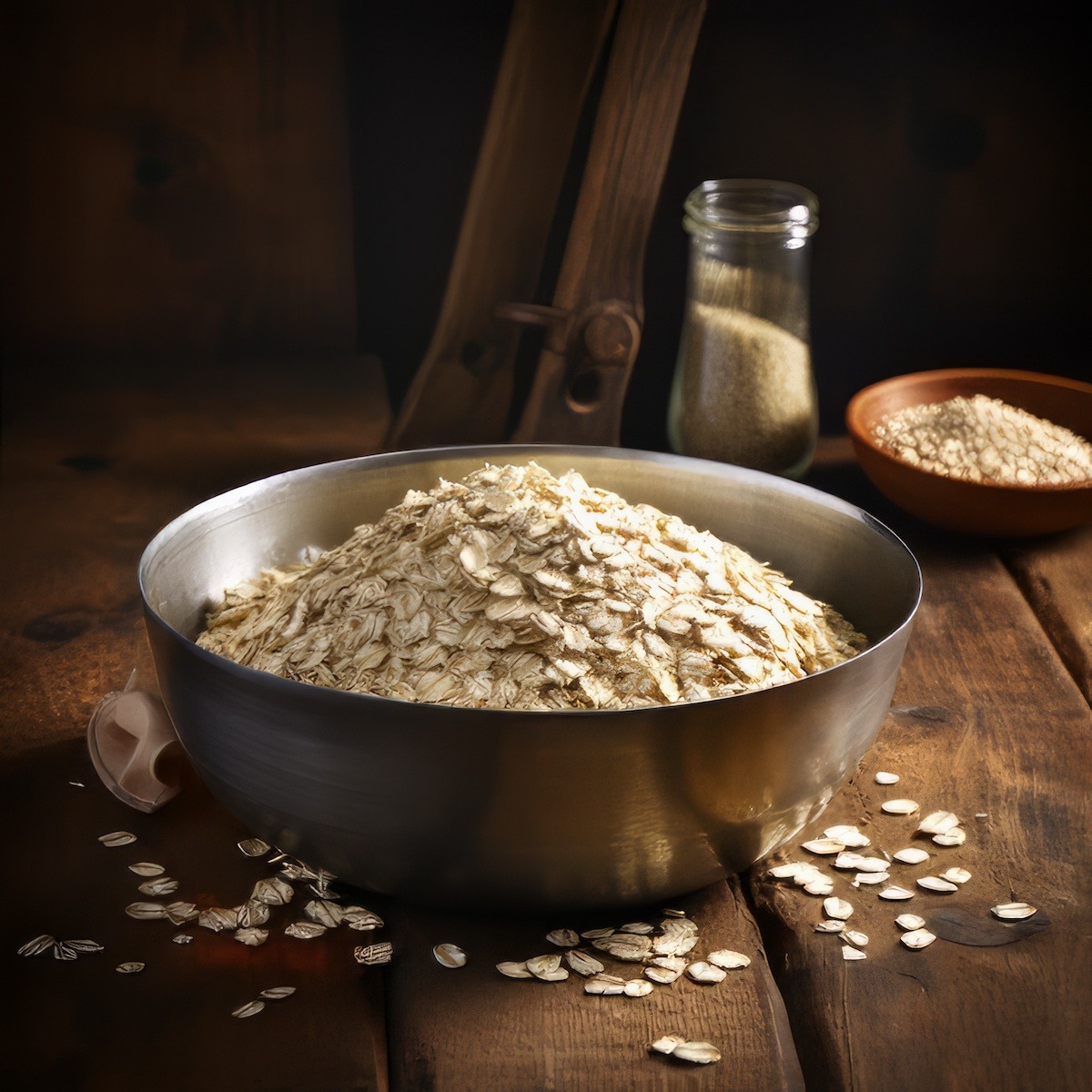
Steel-cut oats, often considered a wholesome breakfast choice, are a minimally processed form of oatmeal that offers a range of health benefits. Also known as Irish or Scottish oats, steel-cut oats are created by chopping whole oat groats into small, coarse pieces. This minimal processing produces a distinct texture and nutty flavor that sets steel-cut oats apart from their more processed counterparts.
- Nutritional Density: Steel-cut oats are a nutritionally dense food packed with essential nutrients. They are an excellent source of complex carbohydrates, providing a sustained release of energy. Additionally, steel-cut oats contain dietary fiber, protein, vitamins (including B vitamins), and minerals such as iron, magnesium, and phosphorus.
- Slow Digestion and Blood Sugar Regulation: The high fiber content in steel-cut oats contributes to slow digestion, promoting a gradual release of glucose into the bloodstream. This can help regulate blood sugar levels, making steel-cut oats suitable for individuals managing diabetes or those aiming to maintain stable energy throughout the day.
- Heart Health: Regular consumption of steel-cut oats is associated with heart health benefits. The soluble fiber in oats, known as beta-glucans, has been shown to help lower cholesterol levels, reducing the risk of cardiovascular disease. The presence of antioxidants in oats further contributes to cardiovascular well-being.
- Satiety and Weight Management: Combining fiber and protein in steel-cut oats contributes to a sense of fullness and satiety. This can benefit weight management by reducing overall calorie intake and preventing overeating throughout the day.
- Versatility in Cooking: Steel-cut oats can be prepared in various ways, allowing for culinary creativity. They can be cooked on the stovetop, in a slow cooker, or even soaked overnight for a convenient morning meal. Steel-cut oats can be customized with various toppings such as fruits, nuts, seeds, and sweeteners to suit individual preferences.
- Texture and Flavor Profile: The coarse texture of steel-cut oats provides a satisfying chewiness, setting them apart from the smoother texture of rolled oats or instant oats. The nutty flavor of steel-cut oats adds depth to the overall taste, making them a favorite among those who appreciate a heartier oatmeal experience.
- Minimally Processed: Unlike instant oats, which undergo significant processing to speed up cooking time, steel-cut oats are minimally processed. This helps retain more of the oat’s natural nutrients and ensures a less refined final product.
- Source of Antioxidants: Oats, including steel-cut oats, contain antioxidants that help combat oxidative stress in the body. These antioxidants contribute to overall health and may play a role in reducing inflammation.
Steel-cut oats are a nutritious, versatile whole grain with many health benefits. Whether enjoyed for breakfast or incorporated into creative recipes, steel-cut oats provide a delicious and satisfying way to boost nutritional intake and support overall well-being.
10. Kasha
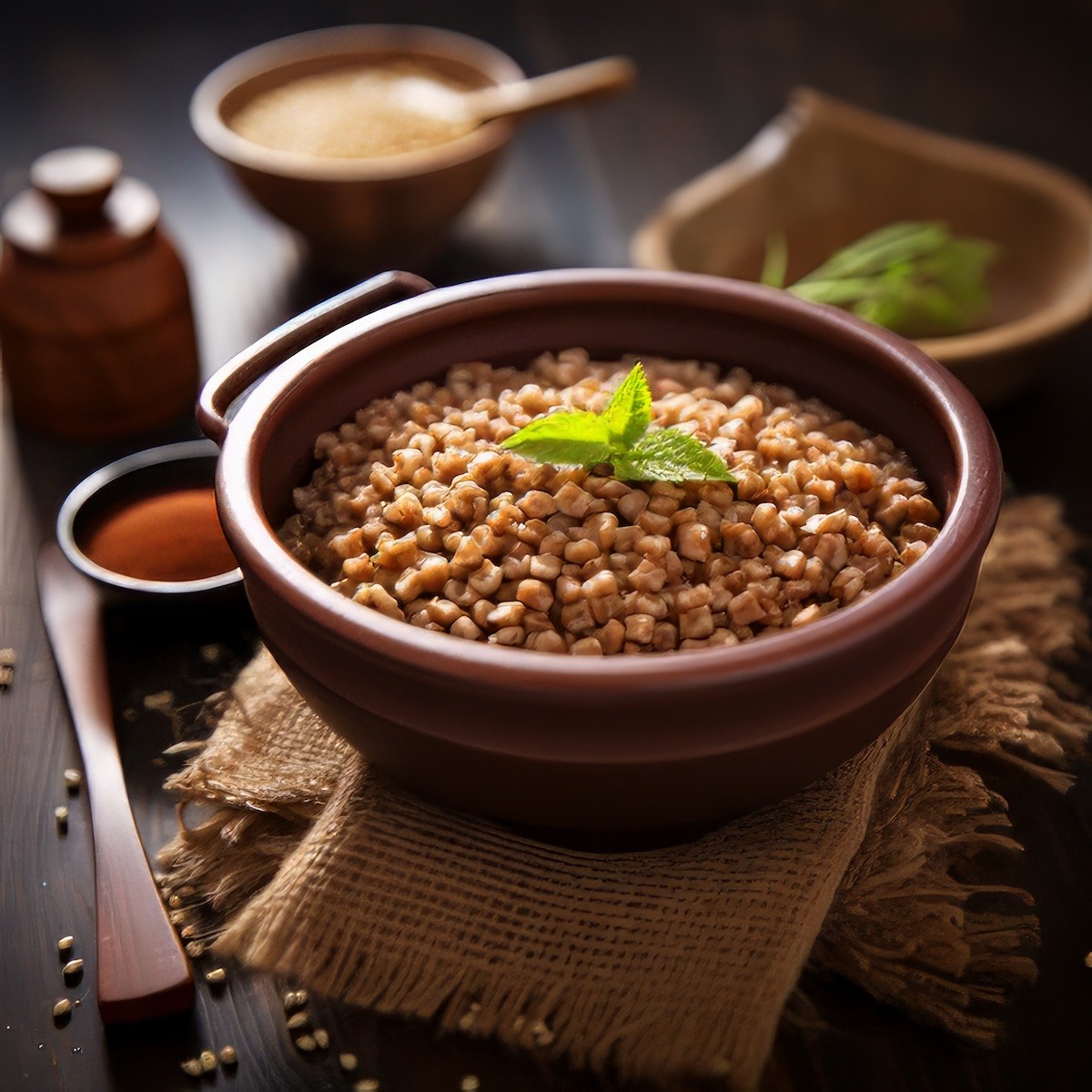
Kasha, a traditional dish in Eastern European and Russian cuisines, refers to cooked grains, most commonly buckwheat groats, that have been toasted or roasted. The term “kasha” is often used specifically for buckwheat kasha, although it can also encompass other grains like barley, oats, or rice. Here are key aspects of kasha:
- Buckwheat Groats: Buckwheat is the primary grain used in traditional kasha. Despite its name, buckwheat is not a type of wheat; it is a gluten-free seed related to rhubarb and sorrel. Buckwheat groats are hulled seeds of the buckwheat plant, and when toasted or roasted, they develop a distinctive nutty flavor.
- Nutritional Profile: Buckwheat kasha is highly nutritious, providing a range of essential nutrients. It is an excellent source of plant-based protein, containing all essential amino acids. Buckwheat is rich in dietary fiber, B vitamins (particularly B6 and niacin), minerals such as magnesium, manganese, and phosphorus, and antioxidants like rutin.
- Gluten-Free Option: Buckwheat is inherently gluten-free, making buckwheat kasha suitable for individuals with gluten sensitivities or those following a gluten-free diet. This characteristic has contributed to the popularity of buckwheat-based dishes in gluten-free and alternative diets.
- Heart Health Benefits: The soluble fiber in buckwheat can help lower cholesterol levels, promoting heart health. Additionally, flavonoids, such as rutin, have antioxidant properties that may contribute to cardiovascular well-being.
- Satiety and Weight Management: Buckwheat kasha, combined with fiber and protein, provides a sense of fullness and satiety. This can benefit weight management by reducing overall calorie intake and controlling appetite.
- Culinary Versatility: Kasha is a versatile ingredient in the kitchen. It can be prepared as a savory side dish, served with vegetables and meat, or as part of a grain bowl. Sweet variations of kasha, incorporating ingredients like honey, fruits, and nuts, are also common.
- Traditional and Cultural Significance: Kasha holds cultural significance in Eastern European and Russian cuisines, where it has been a staple for centuries. It is often featured in various regional dishes, reflecting the diversity of preparations and flavors across different communities.
- Simple Preparation: Making kasha is a relatively straightforward process. The groats are typically toasted or roasted in a dry pan before being cooked with liquid, enhancing their flavor. The preparation method can be adapted to achieve a softer or firmer texture, depending on personal preference.
- Whole Grain Goodness: Buckwheat kasha, being a whole grain, retains the bran and germ layers, ensuring a higher nutrient content compared to refined grains. Whole grains have numerous health benefits, including better digestion and a reduced risk of chronic diseases.
Kasha, particularly buckwheat kasha, is a nutritious and versatile grain dish with a rich cultural history. Its unique flavor, nutritional density, and adaptability in the kitchen make it a valuable addition to a diverse and health-conscious diet.

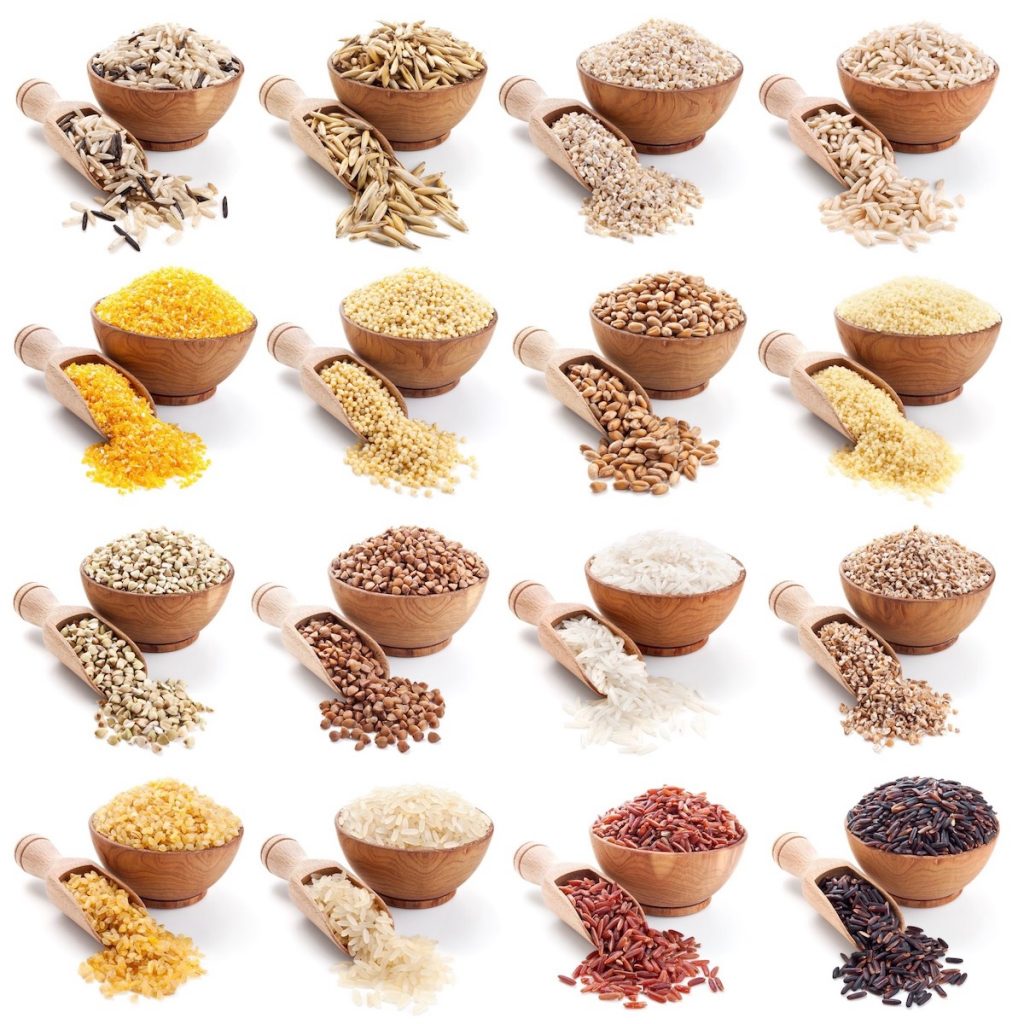

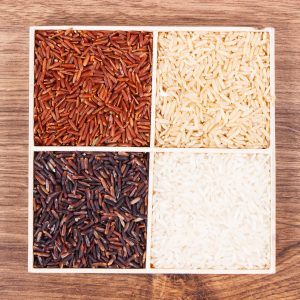


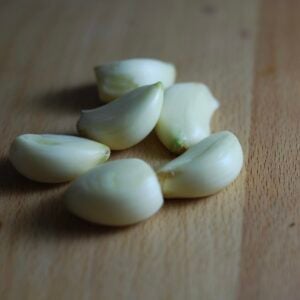






2 Responses
Beautiful site!
Thank you Keila.